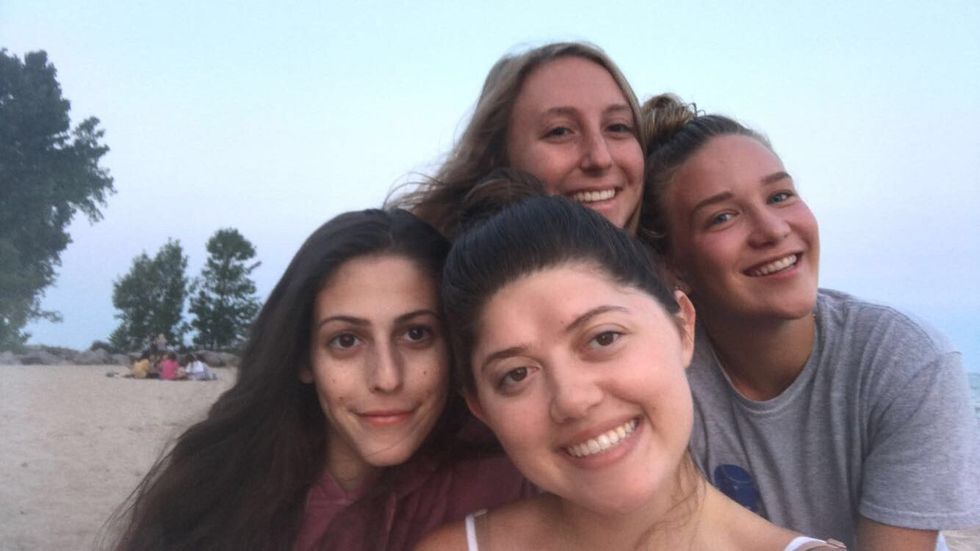It wasn't until my best friend in second grade asked me why I didn't go to church that I realized I didn't know the answer.
"I'm Jewish," I responded, out of habit.
"Well, there's Jewish church," replied my friend. When she left my house, I asked my mom if there was, in fact, Jewish church. She told me that it was actually called synagogue or temple, and that our family didn't go because we didn't really practice Judaism.
My mom was raised Lutheran and converted to Catholicism as an adult. When the "vows" of her first marriage dissolved, so did her faith in the Catholic church. My dad was raised Jewish, and still considers himself Jewish, but my family doesn't celebrate all of the holidays or engage in all of the traditions. Based on both of my parents' experiences, I never really identified with a specific religion. Whenever asked, I would just say that I was Jewish, because it was easier. Also, with the name Hannah Goldberg, most people assume. However, I wasn't Bat Mitzvahed, and I know literally one prayer in Hebrew. My family celebrates Hanukkah and Christmas, but only for the family tradition of it, not the religious aspects. In fact, when I was little, I thought all families opened presents Christmas morning and then went out for Chinese food and a movie that night.
I used to get jealous of my friends or the kids at school because they knew "what they were." Most people that went to my high school are Christian or Jewish, so they got to have Bar or Bat Mitzvahs or they were confirmed. Almost inevitably, they inherited their religious views from their parents. It makes sense that people tend to believe what their parents teach them, but just because someone was raised Christian, for example, doesn't mean Christianity will necessarily resonate with them.
I want to be clear and say that I am a firm believer that people should be whatever religion they choose to be, and if a certain religion connects with them, then that's great.
Religion can be a wonderful thing — a person's faith can serve as a guide to their spiritual life.
That being said, sometimes I think the purpose of religion is lost in the need to comply with all aspects of the given religion.
I think it's important for people to learn multiple religions in order to determine their beliefs. People should practice the values that are most meaningful to them. I see positives and negatives to many religions, and I cannot say that I fit into just one. I consider myself fortunate in this way; since my parents were not very religious, they didn't preach one faith to me during my childhood. I definitely haven't figured out my beliefs completely, but by attending multiple religious centers — a Buddhist cultural center, Jewish synagogues, the Baha'i Temple, a Hinduism temple, and multiple Christian churches — and learning about those faiths, I know what I value most.
As one of my core values, I pride myself on being a caring and empathetic person. I believe that if you do good, good will come your way. I believe in helping those in need. I believe in the importance of family. I believe in equality. I know these values are the framework of multiple faiths. And I believe you can be spiritual without conforming to a religious institution. I don't believe someone is all good or all bad, and this idea parallels religions. They are not all good or all bad. Not identifying with a specific faith has taught me to question the world around me, keep an open mind, think for myself, and draw my own conclusions.
I hope my experience gives you pause to think about not only what, but why, you believe what you do. In all of my exposure to religions, I've learned there is one thing we can all agree on: you can't go wrong with Chinese food and a movie.



















